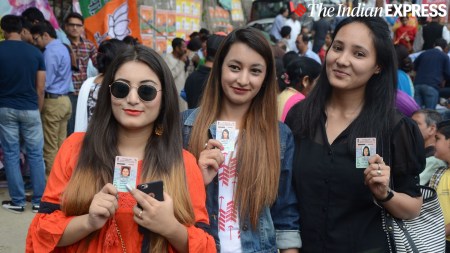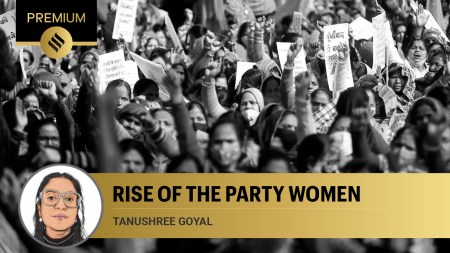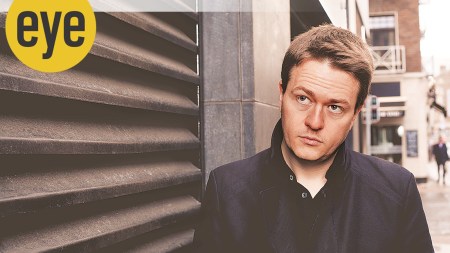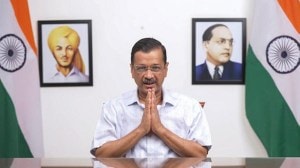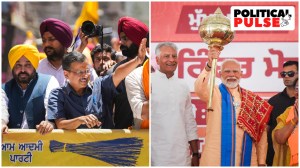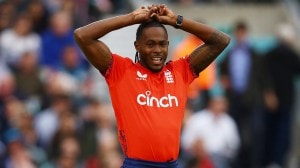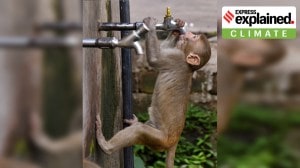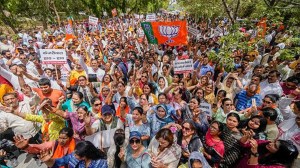- India
- International
Rekha: The enigma who felt she ‘was not respected as human being’ on film sets; became ‘national vamp’ after husband’s death
Rekha continues to be a beauty queen even at 69. When her contemporaries are looking for ways to stay relevant, she continues to live life on her terms and is not seeking validation from anyone, not even her audience.
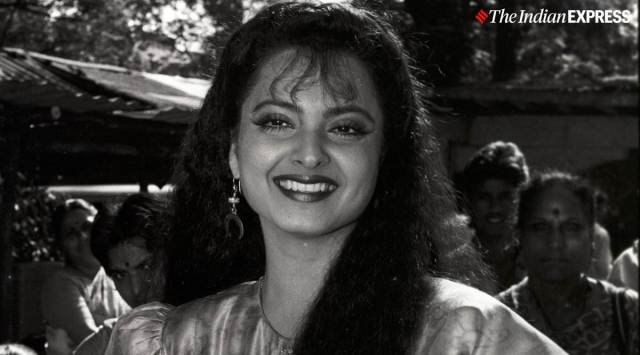 We look back at times when Rekha emerged triumphant every time she was humiliated, pulled down or bad-mouthed. (Express Photo Archive)
We look back at times when Rekha emerged triumphant every time she was humiliated, pulled down or bad-mouthed. (Express Photo Archive) In English literature, there are a ‘type’ of women characters who are hated for living an unconventional life, never giving into the diktats of men, and somehow offending anyone and everyone who comes in their way. They are called the Gorgon-Medusa characters. This literary principle fits well in real life too.
A man dies by suicide. The wife/girlfriend gets blamed. She either becomes a ‘black widow’, ‘witch’, ‘black magic practitioner’ or ‘drug peddler’. Does it ring a bell? No, not that one. In 1990, the last of the great enigmatic movie stars, Rekha’s husband, Mukesh Aggarwal, died by suicide. After it, the actor was put through a media trial, and she became a ‘national vamp’. Film magazine Showtime called her a ‘Black Widow’. Aggarwal’s mother wailed after her son’s death, “Woh daayan mere bete ko kha gayi (That witch devoured my son).”
Even her colleagues from the film industry didn’t stand in support. Filmmaker Subhash Ghai went to the extent of calling her a ‘blot’ on the industry. He was quoted as saying in Rekha: The Untold Story, “No conscientious director will work with her ever again.” But she proved him, and several others, wrong.
Rekha emerged triumphant, like a phoenix, and not just this time, but every time she has been humiliated, pulled down or bad-mouthed. “…A woman of a million miracles” as she called herself in a 1999 interview with Screen.
Since childhood, Rekha was put in a spot where she hated being where she was and what she was doing. There are many stories of her days as a child actor. She belonged to a time when young girls were pushed into the film industry by parents to help the family in financial crisis. In her tender years, she had to play older roles. Before getting into the Hindi cinema, she worked in two Telugu and one Kannada movie. Her debut was at the age of 14 in BN Reddy’s popular social drama, Rangula Ratnam (1966), which also starred Pushpavalli, Rekha’s mother. At 17, she played her first role as a grown-up actress in Dorai Bhagwan’s Operation Jackpotnalli CID 999 (1969), where she had to seduce a detective to take him to her boss.

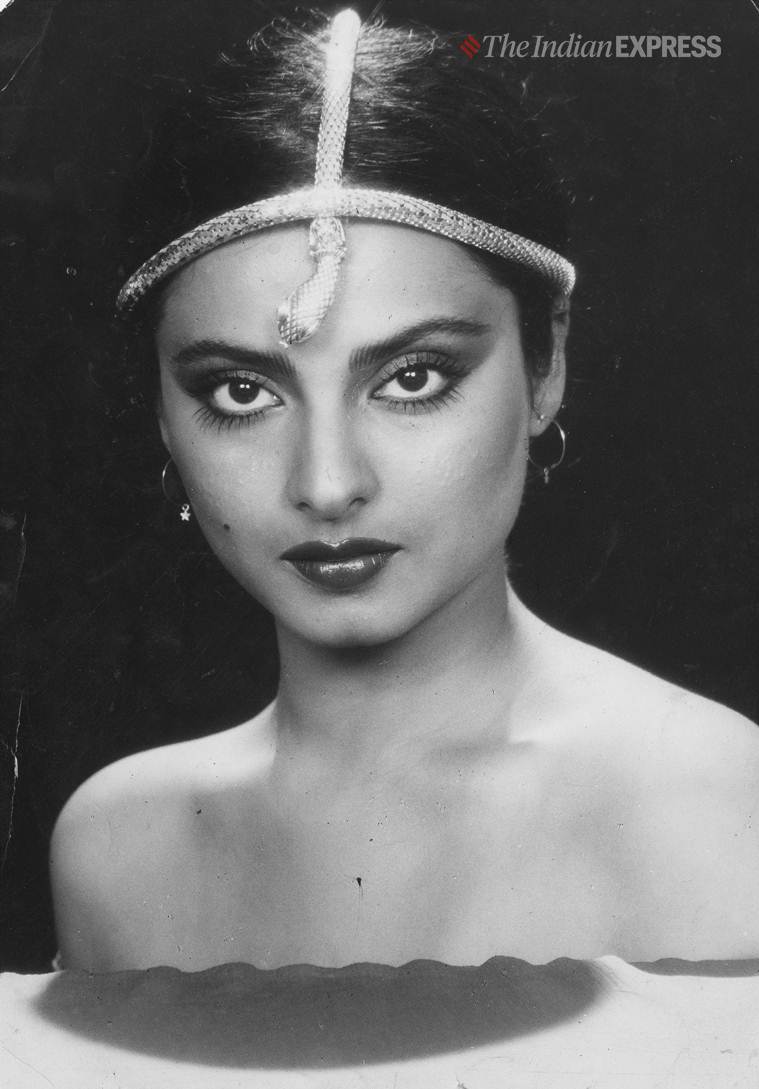 Rekha’s official entry in Bollywood happened with Saawan Bhadho (1970). Express photo
Rekha’s official entry in Bollywood happened with Saawan Bhadho (1970). Express photo
In the same year came her first Hindi film, Anjana Safar, directed by Raja Nawathe and produced by Kuljeet Pal. Already uncomfortable with the language, Rekha was shown the hideous side of the industry, when she was apparently kissed on the lip by co-actor Biswajeet without prior discussion with the director and worse, her consent. What should have accounted for workplace harassment, was taken as a joke. But, Rekha never spoke up about it. She continued doing what was required of her — to provide for her five siblings. She overlooked uncharitable comments and continued working.
“Bombay was like a jungle. I had walked into it unarmed. It was one of the most frightening phases in my life. I was so afraid that I used to make an ayah sleep in my room.” the actor once told journalist Pritish Nandy. She also told Simi Grewal, “I was totally ignorant of the ways of this new world. Guys did try and take advantage of my vulnerabilities. I was not respected as a human being.”
Her official entry in Bollywood happened with Saawan Bhadho (1970). Though the film struck gold at the box office, Rekha’s difficult days didn’t cease to exist. The film’s lead actor, Navin Nischol body-shamed her. He complained, “From where did you pick out this namoona (character)? Itni kaali-kalooti (She’s so dark)!” In the following years, Rekha was ridiculed as ‘dark, plump and gauche’ as she didn’t look like a conventional Bollywood actress. But there was a quiet defiance in the way she took on every role that was offered to her. She radiated her own aura in women-oriented films, which were considered a myth in those times, and also became one of the highest-paid actresses.
In 1976, when her film Do Anjaane, co-starring Amitabh Bachchan, was released, it seemed like the actor learnt and adapted the ways of the film industry. She worked on her physical appeal, her demeanour and her diction, and stood strong in front of Bachchan as his estranged wife and an ambitious actress. The film became a stepping stone in what became a decades-long illustrious career. Rekha entertained the audiences in her many avatars, unabashedly. She breathed life into every role she played — a rape victim in Ghar, a reticent courtesan in Umrao Jaan, a goofy girl-next-door in Khubsoorat, a passionate lover in Silsila and a desolate woman in Ijaazat.
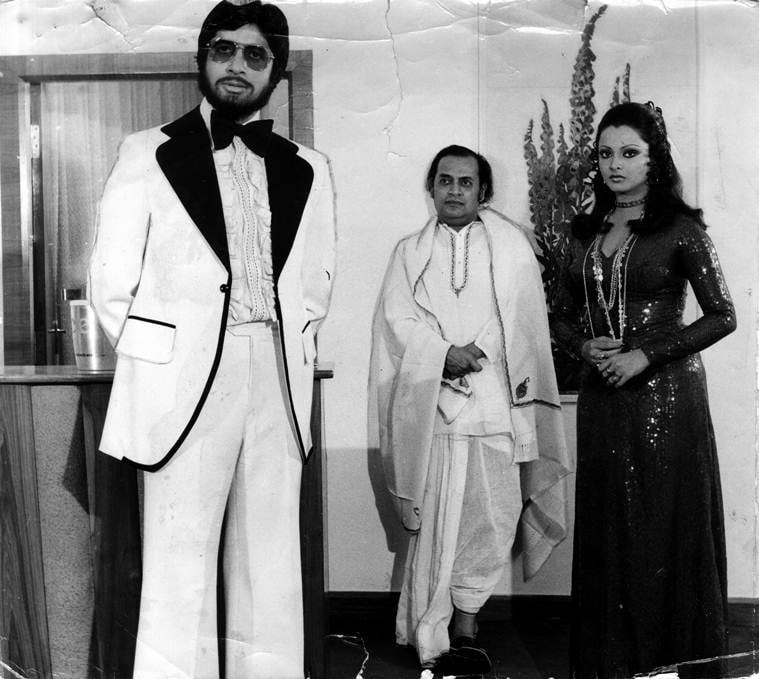 Amitabh Bachchan, Utpal Dutt and Rekha in Do Anjaane. Express archive photo
Amitabh Bachchan, Utpal Dutt and Rekha in Do Anjaane. Express archive photo
Despite the success, one thing remained constant: her being sexualised and demeaned for her life choices, even by her peers like Nargis. “Rekha gives the impression to men that she is easily available. Rekha is looked on as a “witch” by some. Sometimes I think I understand her. I’ve worked with a lot of children with a lot of psychological problems in my time. She’s lost. She needs a strong man,” Nargis said about Rekha in a 1976 interview.
Once again Rekha didn’t retaliate. She took every negative comment in her stride. She believed, as told to Nandy, “When you know you are good and are confident of your worth, you stop being petty. Instead, you make room for others. But if you’re seething within, from jealousy or a sense of inadequacy, no amount of make-up can make your face glow, you’ll still look ugly. Your face is a mirror to what you are.”
Perhaps this is why Rekha continues to be a beauty queen even to this day. When her contemporaries are looking for ways to stay relevant, she continues to live life on her terms and is not seeking validation from anyone, not even her audience. Once crowned “Asia’s Sexiest Women” by British magazine Eastern Eye, she continues to live up to the title. The cover of Vogue Arabia, in which she was designed by Manish Malhotra is a perfect example. With those bold lips, dramatic eyes, statement necklace and stud earrings, one cannot dare to look away from her.
View this post on Instagram
Malhotra noted about her, “Her passion is inspiring”. Not only him, Rekha is an enigma who continues to inspire generations of actors and budding actors, irrespective of what her contemporaries have said about her. Aishwarya Rai Bachchan once said about her, “As a performer, she is inspiring. It’s not only Umrao Jaan but her entire career and characters that she essayed through her performances that are extremely inspiring.”
Rekha has been away from the screen since 2014, and she seems to be in no rush to return. She is letting her admirers stay in awe of what they have of her. She lives with no regrets and no malice for anyone. She had told Screen, “Inspite of all that life has given and taken from me. Rekha has no regrets. Rekha will never have any regrets. What’s there to regret when I have got so much more than I deserved?”
Click for more updates and latest Bollywood news along with Entertainment updates. Also get latest news and top headlines from India and around the world at The Indian Express.
Photos
Jun 01: Latest News
- 01
- 02
- 03
- 04
- 05



